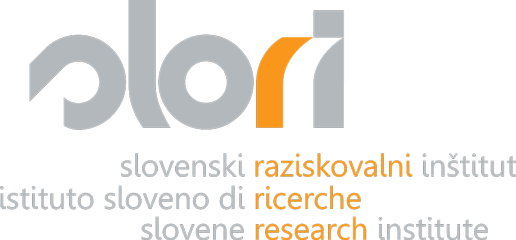A targeted research project funded by the Slovenian Research Agency (ARRS)
Project promotion: The Institute for Ethnic Studies
Partners: The Slovene Research Institute (SLORI), the University of Ljubljana—Faculty of Arts, and the Fran Ramovš Institute of the Slovenian Language
Project supervision at SLORI: Dr Maja Mezgec
Collaborator: Dr Devan Jagodic
Project implementation period: 2016–2017
The aim of the project is to research how the Slovene language is preserved in Udine province (Italy), the Porabje region (Hungary) and in the Varaždin and Medžimurje districts (Croatia). The situation of minorities in neighbouring countries is the result of different social, economic and political processes that took place throughout history. Empirical data show that although the Slovene minorities in neighbouring countries are granted significant legal protection, the minority population and the number of Slovene speakers is decreasing significantly. Moreover, it has been observed that within the minority population the Slovene language is not passed on to new generations.
In 2017, field studies were carried on in the three above-mentioned countries where minorities are present. The methodology of each study was adjusted to the situations in the different geographical areas. In Udine province a qualitative, interview-based approach was used. The material gathered was published in a study on the Udine province, more precisely on the Slavia Friulana region. Taking into consideration new international scenarios, the European integration processes, and the implementation of more favourable legislation (i.e. the Law for the Protection of the Slovene Minority), and bearing in mind the existence of a bilingual school in this region, we tested the hypothesis that in the Slavia Friulana region the right conditions exist for a linguistic revitalisation and the de-assimilation of younger generations. For de-assimilation to occur, the Slovene language needs to be passed down to the new generations and learned again by the generations that did not inherit this language from their parents. Bilingual schooling alone is not enough to ensure that a language is passed down from one generation to the next. Other measures are called for in terms of language planning and language policies, especially measures fostering the use of the Slovene language in a family environment, as well as in different civil society organisations.
The field study results were presented during the closing ceremony held at the Slovene cultural centre in San Pietro al Natisone. On this occasion a working meeting was held to discuss what measures could contribute to keep the Slovene language alive in the Slavia Friulana region. The meeting aimed to identify suitable measures to preserve the Slovene language in a region where, according to official indicators, it is very much endangered. The discussion was moderated by Dr Maja Mezgec, researcher at the Slovene Research Institute (SLORI). At the end of the discussion participants were invited to propose possible solutions.
